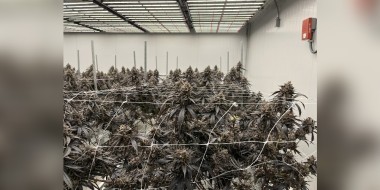Key Takeaways
- Innovative F1 Hybrid Seeds: Phylos introduces 10 Elite F1 hybrid seed varieties designed for high-stress, controlled environments.
- Benefits Over Clones: These seeds outperform traditional clones by providing uniform genetics, higher yields, lower production costs, and resistance to stress and diseases like HLVd.
- Efficiency and Economy: The use of Elite seeds reduces labor and care costs, allows for more production cycles, and supports mechanization.
- Proven Success: Preliminary trials by major cannabis producers like Organigram have shown considerable improvements in cost-efficiency and plant quality.
Introduction to Phylos Elite Seeds
Phylos, a pioneering cannabis genetics company based in Portland, Oregon, has recently expanded its product lineup by adding 10 proprietary Elite F1 hybrid seeds. These seeds are engineered to thrive in controlled environments, such as indoor and greenhouse setups, offering a robust solution to the challenges faced by commercial cannabis producers.
According to Phylos CEO Ralph Risch, these Elite seeds are the first of their kind, specifically bred to excel under the rigorous conditions of rapid cycle times and high-stress environments.
ALSO READ: Humboldt Seed Company Unveils New High-Potency Triploid Cannabis Seeds
"Elite seeds generate vigorous plants that produce premium, standardized consumer products while reducing notoriously high costs of operating indoor and greenhouse grows," Risch noted in a news release. "To our knowledge, Elites are the first seeds bred and validated to perform in high-stress, rapid cycle time, controlled environments."
Advantages of Elite Seeds in Cannabis Production
The introduction of Elite seeds by Phylos marks a significant milestone in cannabis cultivation, presenting numerous advantages over traditional clonal propagation methods:
- Uniform and Consistent Products: These seeds ensure the production of genetically and physically consistent plants, leading to standardized, high-quality consumer products.
- Increased Yields and Reduced Costs: Growers can expect greater yields and shorter times to flowering maturity, contributing to more production cycles annually and reduced costs related to production, labor, and pest management.
- Stress and Disease Resistance: Elite seeds are bred for resilience, minimizing the risk of hermaphroditism and infections, including the notorious Hop Latent Viroid (HLVd).
Industry Endorsements and Trial Successes
Adopting Phylos Elite seeds has already garnered positive feedback from industry leaders. Organigram's CEO, Beena Goldenberg, highlighted the significant reduction in labor and plant care costs, foreseeing a lasting improvement to the company's financial health. Similarly, StateHouse Holdings reported excellent outcomes from their trials, praising the high-quality flower production, comparable yields to clones, and no genetic instabilities. This further consolidates the potential of F1 Hybrid Seeds in revolutionizing cannabis cultivation.
ALSO READ: Fast Buds Launches the Most Potent Autoflowering Seeds for 2022
The creation of these F1 hybrid seeds, explicitly bred for controlled environments, addresses several key challenges plaguing indoor and greenhouse cannabis growers: variability in plant quality, high operational costs, and susceptibility to stress and disease.
By offering seeds that produce plants with uniform genetics, Phylos provides a solution that ensures consistent product quality—a critical factor for consumer satisfaction and regulatory compliance. Moreover, the seeds' resilience to Hop Latent Viroid (HLVd) and other pests reduces the risk of crop loss, further improving economic outcomes for growers. Producing higher yields with shorter flowering times boosts production efficiency and enables a faster return on investment, making cannabis cultivation more accessible and profitable.
Phylos' innovation exemplifies the cannabis industry's ongoing shift toward genetic and agronomic advancements. As industry leaders and participants in preliminary trials noted, the transition from clone-based to seed-based cultivation could herald a new era of scalability and sustainability in cannabis production.
[Image via Phylos]
